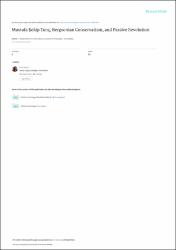Mustafa Sekip Tunc, Bergsonian conservatism, and passive revolution
Künye
Subasi, E. (2021). Mustafa Sekip Tunc, Bergsonian Conservatism, and Passive Revolution. Beytulhikme- International Journal of Philosophy, 11(1), 139-154. http://doi.org/10.18491/beytulhikme.1590Özet
The 1930s in Turkey is a highly controversial socio-political topic with two main competing interpretations: the liberal-positivists consider the 1930's transformation as a progressive move whereas conservative-idealists regard it as a top-down break from tradition and history. However, there are other readings that bridge these two positions. To analyze one of these, this study establishes links between Mustafa Sekib Tunc (1886-1958), a Turkish psychologist and philosopher, the French philosopher Henri Bergson (1859-1941), the French sociologist Emile Durkheim (1858-1917), and the Italian philosopher Antonio Gramsci (1891-1937). It does this through the latter's concept of "passive revolution" to contribute to the understanding of Turkey's socio-political transformation during the 1930s. The main argument is that Tunc's anti-empiricist and anti-positivist philosophy, based on Bergson's spiritualist and biologist-holisticism, meets with Durkheim's positivist collectivism. This enables Tunc to interpret the 1930s' passive revolution as a "conservative revolution" that found its expression in the formulation of the "unprivileged-classlessfused-mass" and an "organic society". Tunc, following Bergson, conceives history and society biologically, as a socio-functional whole that helps mask sociopolitical divisions and struggles within the society.


















